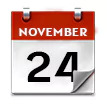4 October 2024 : Indian Express Editorial Analysis
1. Both for and against
(Source: Indian Express; Section: The Editorial Page; Page: 10)
| Topic: GS2– Governance |
| Context: |
|
What is One Nation, One Election?
- Definition: ONOE refers to the proposal of holding simultaneous elections for the Lok Sabha and all State Legislative Assemblies in India.
- In some cases, it may also include local body elections, such as those for municipalities and panchayats.
- Objective: The fundamental aim of ONOE is to align the electoral cycles across different levels of government, conducting elections concurrently or within a set timeframe.
- This would necessitate significant constitutional amendments and changes to various election related laws and processes.
Mixed Perspective on ONOE
- The article adopts a somewhat agnostic stance towards the idea of One Nation, One Election (ONOE), diverging from most opinions in political science who are either strongly for or against the proposal.
- While not finding the government’s rationale compelling, especially given the speculative nature of claims like promoting national unity, reducing election expenditures, or enhancing governmental efficiency, the article also finds the criticism of ONOE equally unconvincing.
- Rather than taking a definitive side, the article invites readers to explore the complexities surrounding this issue.
The Argument of Diversity: A Rhetorical Red Herring
- One of the key criticisms of ONOE is that it threatens India’s diversity. However, the article questions why the synchronization of elections would necessarily have any impact on diversity.
- Just as the government’s claim that ONOE is essential for national unity is speculative, the argument that staggered elections promote diversity seems equally unsubstantiated.
- The article points out that the timing of elections seems orthogonal (irrelevant) to the broader issues of diversity, framing this criticism as a rhetorical distraction rather than a valid point against ONOE.
Democratic Clutter: More than Just Elections
- Another common critique of ONOE is that it suggests impatience with the so-called “clutter” of democratic politics.
- Yet, the article argues that ONOE, in itself, does not devalue elections or democratic processes. Critics seem to conflate democracy with the mere occurrence of staggered elections, neglecting the importance of public opinion formation, civil society mobilization, and public accountability.
- In fact, the article posits that ONOE might even enrich democracy by allowing social movements to flourish in spaces less dominated by partisanship.
- Elections, while vital, are not the sole mode of democratic engagement, and ONOE might open up other forms of political mobilization and accountability.
Presidentialism and Nationalization of Elections: An Overstated Concern
- A prominent worry regarding ONOE is that it would “nationalize” state elections or push India toward a more presidential form of governance.
- The article challenges this view by pointing out that the assumption national issues would eclipse state matters in simultaneous elections is based on limited evidence.
- Moreover, this concern carries a tone of elitism, implying that voters are incapable of distinguishing between local and national issues.
- ONOE could also force national leaders to pay more attention to local issues, as the dynamics of simultaneous elections may not favor either national or local dominance uniformly.
- Thus, the claim that ONOE would inevitably lead to presidentialism remains underdetermined.
Legislative Power and Parliamentary Dignity: A Misplaced Criticism
- Critics also suggest that ONOE could diminish the power of individual representatives and erode the dignity of legislative bodies like Parliament.
- The article finds this perplexing, especially given that the Anti-Defection Bill has already limited the independence of representatives, reducing them to party instruments.
- Additionally, no-confidence motions, meant to ensure parliamentary accountability, rarely succeed in practice.
- The article suggests that the real issue lies not in ONOE but in restoring Parliament’s dignity and effectiveness.
- The occasional need for mid-term elections, should a government collapse, could even enhance democratic accountability rather than hinder it.
Expenditure, Fiscal Populism, and Democratic Accountability
- While the government touts ONOE as a way to reduce election-related expenditures, the author remains skeptical of this claim, particularly regarding candidate spending.
- Moreover, the assumption that synchronizing elections would reduce fiscal populism—where parties promise extravagant policies to woo voters—is also questionable.
- In a highly competitive political environment, parties will likely continue offering populist measures regardless of the election calendar.
- The most significant risk of ONOE, however, lies in the lack of an electoral mechanism for voters to express discontent over a full five-year term, potentially stifling democratic accountability between elections.
The Real Issue: Local Governance
- The article emphasizes that one of the real challenges in Indian democracy is the state of local governance. Empowered local governments, such as panchayats and municipal bodies, are crucial for democratic health, yet they are often neglected in favor of national and state-level politics.
- The article argues that local governments need major reform, but whether ONOE would positively or negatively impact this remains unclear.
- The deeper issue is that democracy in India requires more imagination than just adjusting the timing of elections.
Conclusion: ONOE — Neither Panacea nor Apocalypse
- Ultimately, the article concludes that ONOE is neither a cure-all for democracy’s ailments nor a catastrophe waiting to happen. Both proponents and critics of ONOE fall into similar formalistic traps, equating election schedules with broader democratic outcomes.
- While ONOE might have some merit, it will not address the more pressing issues facing Indian democracy, such as the need for local governance reform, public accountability, and political creativity beyond elections.
- Thus, ONOE may be a peripheral issue in the larger picture of democratic development.
| What are the Advantages of One Nation, One Election? |
|
| PYQ: ‘Simultaneous election to the Lok Sabha and the State Assemblies will limit the amount of time and money spent in electioneering but it will reduce the government’s accountability to the people’ Discuss. (150 words/10m) (UPSC CSE (M) GS-2 2017) |
| Practice Question: Critically examine the proposal of One Nation, One Election (ONOE) in the context of India’s democracy. What are the potential benefits and challenges associated with its implementation, and how might it impact the broader democratic processes, including the role of local governance? (250 words/15 m) |


